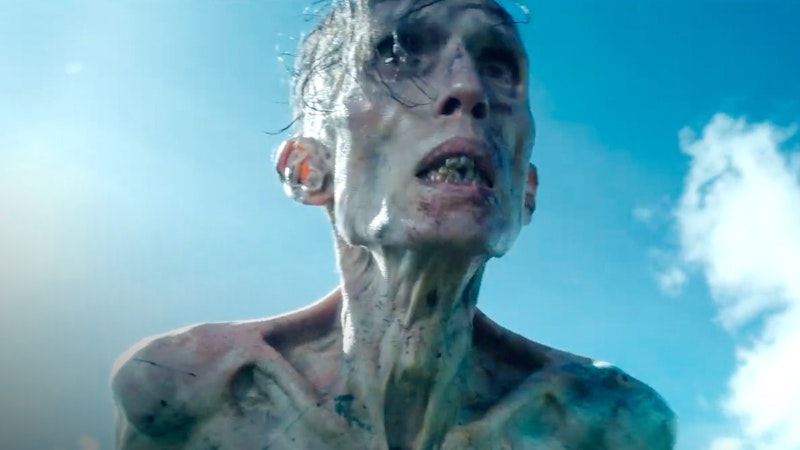I know what it is about zombie stories, especially of the prestige variety, that makes them run out of steam quickly. The Walking Dead started well but trailed off after a year or two. The Last of Us petered out even faster than that. And now there’s 28 Years Later, the third in the film series that began in 2002 with 28 Days Later and continued 2007 with 28 Weeks Later. The new film, featuring the return of director Danny Boyle and screenwriter Alex Garland, is the worst of the three films by far.
Is the zombie genre just fatally flawed, or out of ideas? Or has it gotten impossible to execute it for any length of time without getting repetitive? Whatever the answer, there are several things wrong here, from a cruddy visual style to incoherent action scenes to a listless lead performance. But the biggest problem is that there just wasn’t an idea good enough to justify a sequel.
The film’s set 28 years after the start of the rage virus zombie pandemic, although it doesn’t look particularly futuristic. It’s set on an island off of northern England that’s reachable by a rickety bridge, where the main characters are a family: Hunter Jamie (Aaron Taylor-Johnson), his mysteriously ill wife Isla (Jodie Comer), and their 12-year-old son Spike (Alfie Williams.) As with the other films in the series, there’s an all-new cast.
The big change now is that the “rage” virus appears to have evolved and created an “alpha” zombie who can’t be easily killed. In between that, there’s the same zombie attack sequence over and over again, usually shot in incoherent shaky-cam with too much of the camera aimed at the characters’ feet.
The film was reportedly shot with unconventional equipment, including iPhones; apparently not everyone is as good at that as Steven Soderbergh, because this movie looks like crud. Eventually, Spike is taking his mother to what appears to be this society’s only surviving doctor, played by Boyle perennial Ralph Fiennes. The sequence is one of the film’s lone highlights, even if it ends on an inexplicable note.
Talented as Taylor-Johnson and Comer are, Williams ends up carrying a lot of the load, and he isn’t up for it. Boyle’s an inconsistent filmmaker. Some films are outstanding (Trainspotting, Sunshine, 127 Hours), and some less so (the Oscar-winning Slumdog Millionaire, one of his worst films). 28 Years Later is the first film Boyle has directed in six years, since Yesterday, that oddity where the guy wakes up and is the only person who remembers the Beatles. Meanwhile, Garland’s emerged as an auteur in his own right, directing recent films (Civil War and Warfare) full of ideas that don’t congeal.
There’s a fourth film on the way next year, whose premise was set up by the film’s final scene, something more exciting than most of what we saw before. Maybe they should have skipped the third film and gone right ahead to the next one.

